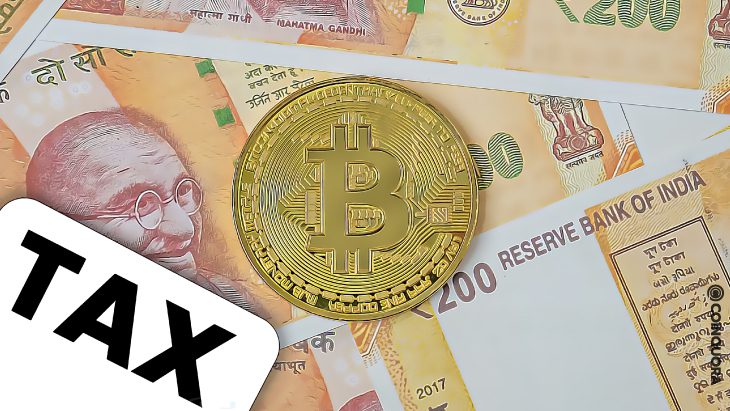- The Indian Ministry of Finance announced a 1% tax on all asset transfers above a certain size.
- The taxes will be imposed on July 1, 2022, yet the market is already panicking.
- A 30% flat tax on crypto income and digital assets investments has also been announced.
As the Indian Ministry of Finance announced a 1% tax-deductible at source (TDS) on all asset transfers, the crypto market is already preparing for a state of chaos. The announcement stated that the tax will start to be applicable by July 1 of this year.
The Ministry of Finance also announced a 30% flat tax on all digital assets investment and crypto income. The announcement came in the Finance Minister’s Budget speech. The government has also clarified that investors won’t be able to offset losses in a trade against gains in others.
With the new rules applied, the buyer of digital assets, cryptocurrencies as an example, will have to deduct 1% TDS on behalf of the seller if the transaction exceeds ₹10,000, which equals $132.34. Taxes will also be collected if the transactions are minor but the collective number of them exceeds ₹50,000, which equals $661.79.
Lawyers, crypto-exchange executives, and tax analysts are warning that taxes will drive liquidity out of the market by forcing a higher frequency of trading ratio.
Meanwhile, some reactions to this news were negative and unwelcoming. Nischal Shetty, chief executive officer of WazirX, India’s biggest crypto exchange, called the 1% TDS “the worst-case scenario for the industry.”
Whereas Manhar Garegrat, executive director of policy at crypto exchange CoinDCX, said:
There will be no liquidity left in the markets. Trades placed by buyers will not get executed as efficiently as they do today, and such inefficiency will eventually dwindle the whole ecosystem.
Since 2020, when the Supreme Court withdrew a central bank directive banning regulated businesses from working with digital-assets companies, India has been stuck in a regulatory void.


